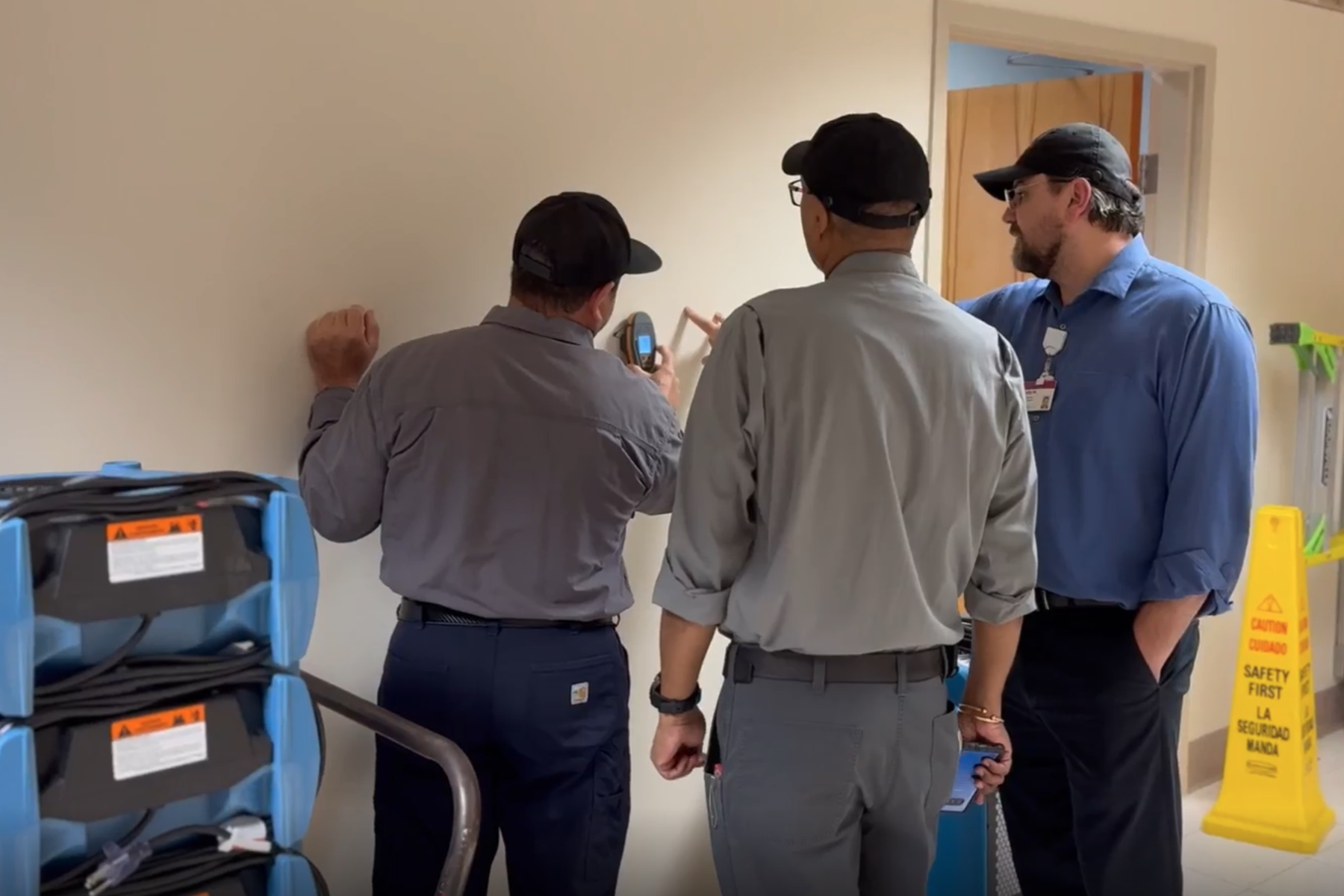By TJ Grim, Ready 2 Respond Trainer
Prisma Health Baptist Hospital in Columbia, SC, is a 765,000-square-foot facility spanning 11 floors and supporting thousands of patients, staff, and visitors. Like many complex healthcare environments, the hospital faced a growing challenge: frequent water intrusions that disrupted operations, created safety hazards, and strained budgets.
In August 2024, the Prisma facilities team turned to the Ready 2 Respond® (R2R) program to bring water damage response in-house. Through customized training and tools, the team is now handling emergencies swiftly and cost-effectively – transforming their approach to facility resilience.
The Challenge
Water damage incidents were a recurring issue at Prisma Health. A mix of piping leaks, cast iron pipe failures, and intentional sink blockages in behavioral health units meant the facilities team was often reacting under pressure. Before implementing R2R, the hospital relied heavily on external contractors – spending $8,000–$10,000 for minor jobs and as much as $80,000 for larger ones. Contractor delays also impacted operations and risked incomplete drying and poor documentation.
Despite the team’s dedication, limited training and a lack of the right tools left gaps that made in-house response difficult.
Assessment Insights: Strengths and Gaps
A thorough assessment conducted by the R2R team helped identify what Prisma Health was doing well – and where improvements were needed.
What Was Working:
- Staff had hands-on experience responding to water events.
- Communication during incidents was clear, with proper signage and PPE use.
- Custodial supply areas were well-stocked and neatly organized.
- Team members expressed pride in their contributions to the hospital’s operations and community safety.
Where Gaps Existed:
- Team members weren’t familiar with water damage classifications (clean, gray, black).
- Equipment was outdated or insufficient, and training on usage was inconsistent – leading to misuse and elevated safety risks.
- No system was in place for tracking or logging equipment.
- Response protocols weren’t standardized, resulting in inconsistent outcomes.
- Fixed storage setups made it difficult to reposition equipment quickly during a water event.
The Plan: R2R Recommendations
The R2R® assessment led to a clear roadmap for improvement, including:
1. Equip with High-Performance Tools
Invest in professional-grade drying equipment and implement, where possible, smart tracking systems (Bluetooth/Wi-Fi-enabled) to improve deployment speed, accessibility, and accountability during emergencies.
2. Strengthen Team Training
Provide certification training for all first responders, i.e., team members involved in water remediation and air quality response, along with advanced training for supervisors to enhance leadership and decision-making in the field.
3. Standardize Protocols
Create clear, detailed SOPs for water-related incidents, including plans for staffing gaps, and define consistent scopes of work to improve response times and ensure accountability.
4. Implement Preventative Maintenance
Establish a regular maintenance schedule for all drying equipment to reduce downtime, extend service life, and ensure readiness when emergencies occur.
Implementation: From Uncertainty to Ownership
Customized onboarding sessions focused on hands-on training with the newly acquired equipment. Staff learned how to properly assess incidents, calculate drying equipment needs and deploy tools effectively, and document drying progress.
Empowered by training, team leaders reported a noticeable shift in attitude among first responders. Previously viewed as a burden, water leaks are now seen as an opportunity to demonstrate skill and efficiency. This enthusiasm is exemplified by team members eager to apply their training and even compete to use the new tools.
By combining technical knowledge with the right resources, Prisma Health established a capable, motivated in-house team equipped to manage emergencies effectively.
Early Results: ROI Within Two Months
Just months after implementation, the impact was clear:
- Eight Incidents Handled In-House: The team responded to eight clean water emergencies, each involving 300 to 400 square feet, without needing external contractors.
- Cost Avoidance: With contractor fees previously running as high as $80,000 per job, the in-house team avoided tens of thousands in expenses. The program’s $33,000 to $34,000 investment more than paid for itself in under two months.
- Improved Documentation: Water incidents are now tracked with log sheets and detailed notes attached to work orders, supporting legal, safety, and risk management needs.
- Increased Confidence: The team now assesses situations, selects equipment, and initiates response without hesitation. When contractors are required, they’re able to monitor their work with a trained eye.
“This program has transformed our approach,” said one facilities supervisor. “It’s not just an investment; it’s a game-changer for peace of mind. Knowing we can resolve issues efficiently and document them accurately makes all the difference.”
Looking Ahead
The success of the R2R rollout has led Prisma Health to plan for continued program deployment. Supervisors are slated to attend advanced training sessions to further elevate the team’s capabilities.
By partnering with the R2R program, Prisma Health Baptist Hospital has optimized its response to water damage and strengthened its commitment to safety, operational efficiency, and long-term resilience.
Contact the R2R team for assistance with a customized response plan that includes tailored, hands-on training. For facility management tips, follow us on LinkedIn and subscribe to our Facility Insights newsletter.


The Power of Inclusive Communication
Why Small Leaks Aren’t Small Problems in Your Facility